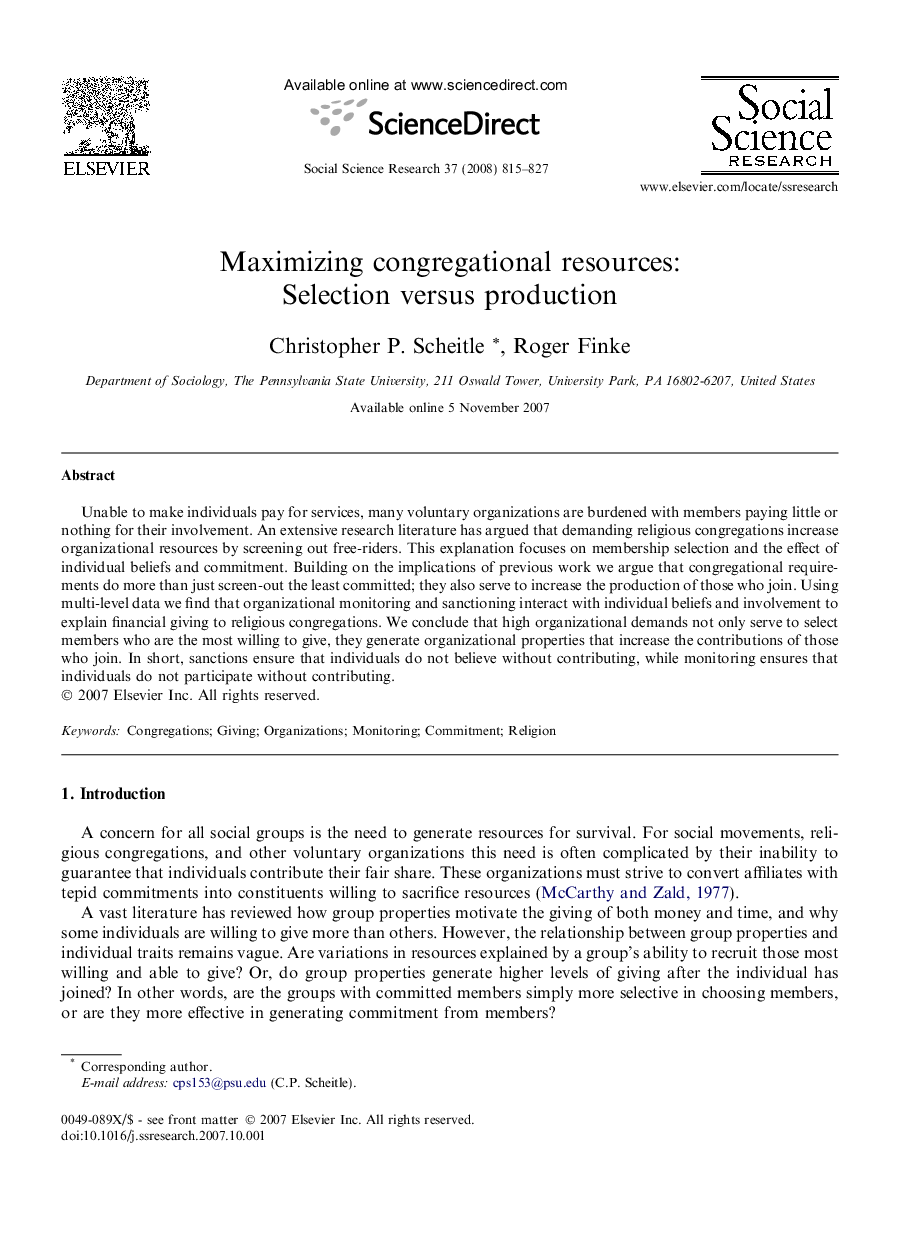| Article ID | Journal | Published Year | Pages | File Type |
|---|---|---|---|---|
| 956416 | Social Science Research | 2008 | 13 Pages |
Unable to make individuals pay for services, many voluntary organizations are burdened with members paying little or nothing for their involvement. An extensive research literature has argued that demanding religious congregations increase organizational resources by screening out free-riders. This explanation focuses on membership selection and the effect of individual beliefs and commitment. Building on the implications of previous work we argue that congregational requirements do more than just screen-out the least committed; they also serve to increase the production of those who join. Using multi-level data we find that organizational monitoring and sanctioning interact with individual beliefs and involvement to explain financial giving to religious congregations. We conclude that high organizational demands not only serve to select members who are the most willing to give, they generate organizational properties that increase the contributions of those who join. In short, sanctions ensure that individuals do not believe without contributing, while monitoring ensures that individuals do not participate without contributing.
